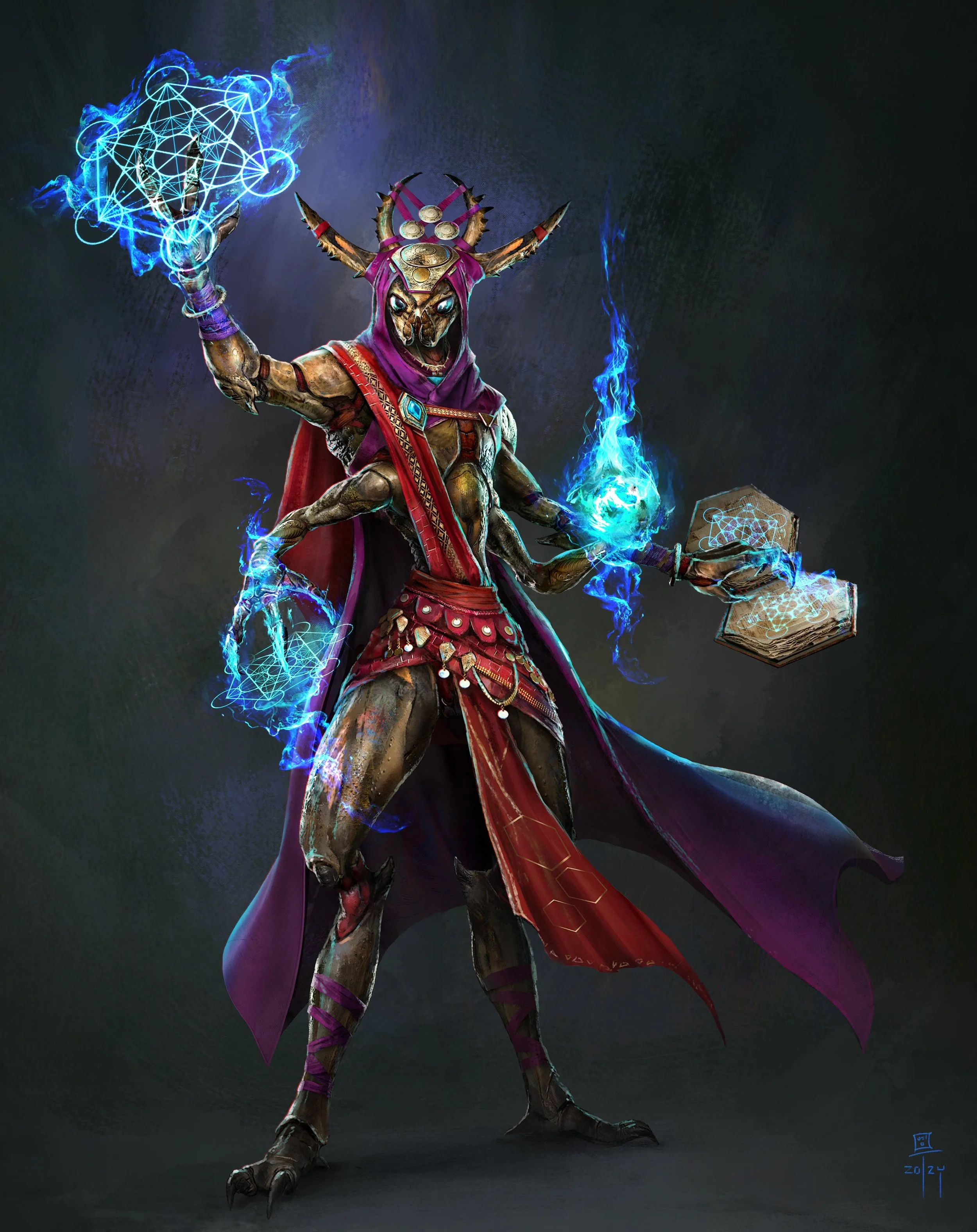When Spells Go Wrong: Arcane Magic and Risk in Drashar
You go to cast the spell, and the dice are not in your favor. You fail on your spellcasting test. What happens next? Does the spell simply fail, or does the spell go awry?
Today, we are going to talk about arcane magic in Drashar and how we are working to make the mechanics align with the vibes of the setting.
In the world of Drashar, arcane magic is outlawed. The Church Draconis views arcane magic as heresy and linked to the Oax the Destroyer and Insa, the undead goddess of insects, mathematics, and necromancy. The church is a powerful institution across Drashar, and persecution of arcane magic has driven its practice underground. With the exception of a few of the more open-minded cities and domains, arcane magic is addressed as a crime worthy of capital punishment.
Some people believe the church's hostility toward the arts arcane actually lies in the fact that, unlike other mystical paths, any person can learn arcane magic through sufficient dedication and study. This is further proven by the fact that the free city-state of Solace has the only known school dedicated to advancing the study of arcane magic. At this aptly named College of Progressive Thought, students study arcane magic much in the same way a student might learn mathematics, sciences, and philosophy.
Counterpoints to this fact bring up the dangers of arcane spells, speaking of their volatility and unpredictable nature when cast incorrectly. And of course, the Church will preach of how arcane magic is the path to corruption and becoming one of the Oax's unspeakable Wretched.
Now that we have a sense of the setting's form of arcane magic, it is time to ensure that the game's mechanics support this approach. The way we handle this in the 2dX Engine is through two primary mechanical methods. Theorem Tests and Arcane Deviations.
Theorem Tests
Arcane magic is a synthesis of chemistry, geometry, symbology, and linguistics (spoken, written, and sign). A wizard can precisely combine these sciences to coax magical energies out of the aether and into the mundane world to produce desired effects.
These detailed combinations are known arcane theorems (aka Spells), and require training and patience to learn. It takes significantly more effort to develop new theorems from scratch, which makes these spells and spellbooks highly coveted treasures for many wizards.
Mechanically, whenever a wizard wishes to cast a spell, they must provide the necessary components and spend the appropriate amount of casting time, after which they make a Theorem Test vs the Theorem Difficulty Rank(aka target number) of the spell.
This is just like a normal test in the 2dX Engine of 2d10 (one destiny and one doom die) + the wizard's Reason attribute + Spellcasting skill, and the more complex and powerful the spell, the higher the Theorem Difficulty rank.
While the Theorem Difficulty Rank of most spells is high, wizards have a resource they can choose to spend when making their Theorem Tests: Essence. Essence in the 2dX Engine is the universal currency that all characters with a Mystic Path utilize to fuel their supernatural abilities. It represents the mana, focus, grit, rage, or whatever resources your character uses to fuel their abilities. In the case of wizards, Essence represents their focus, will, and intent to ensure they cast their spells precisely.
Before making the Theorem Test, the wizard's player may choose to spend any amount of essence from their pool to gain a +1 bonus to their roll for each essence spent. Players are not obligated to spend any essence, or they may choose to spend all their essence to ensure the spell has a profound effect. However, failing their Theorem test doesn't cause the spell to simply fail; instead, it causes Arcane Deviations.
Here is the description of the possible success levels of the Theorem Test:
Critical Success: The spell is cast with no deviations, and a benefit is gained (often increasing the effect of the spell)
Success: The spell is cast successfully with no deviations.
Failure: The spell is cast, but the caster has to make a roll on the arcane deviations chart.
Critical Failure: The spell is cast, but the caster has to roll twice on the arcane deviations chart and take the lower result.
These results support the theme of calculations gone awry and also make failure interesting when combined with Arcane Deviations.
Arcane Deviations
As is often the case with complex calculations, when you mess up, you still get a result, but it is often not the result you intended or expected. This is the same case with failed arcane spells, and where Arcane Deviations come into play.
The Arcane Deviations chart has the player Roll 2d10 and subtract the rank of the spell that they cast that caused the deviation roll. This produces results of -3 to 19, with the lower the roll, the worse or more deviated the effect.
Many of the results lean into changes to the spell or other totally unintended consequences. Here are a few examples:
Targeting Miscalculation - Change the target of the spell to a randomly determined valid target within range.
Range Limit - Change the range of the spell to half of its original range, and randomly determine a new valid target within range.
Inverted Formula- The spell has the opposite effect as intended. A damaging spell heals 1 wound rank, revealing spells obscure; protection spells weaken instead.
Geometric Collapse - All creatures and objects sized Large or smaller within 60 feet are drawn 30 feet directly towards you.
Dimensional Rift - The spell fails and has no effect; instead, a powerful (Rank 5) otherworldly creature appears within 30 feet of you. It is extremely hostile to all creatures in the area.
So, what do you think? How do you make the mechanics of your game support the vibe of the setting?

